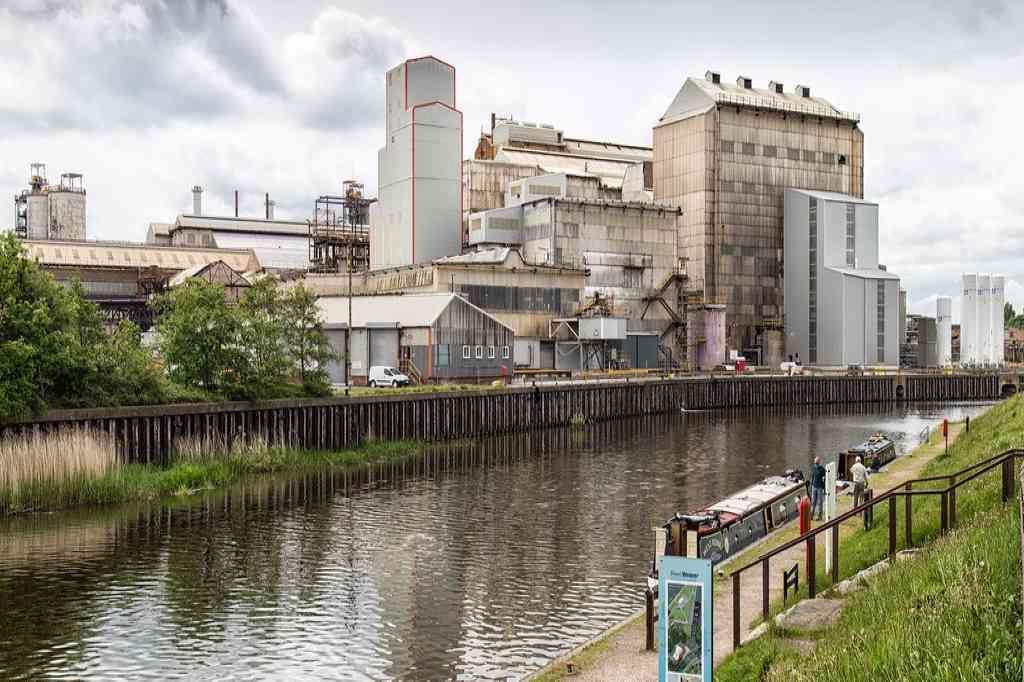Economically, the UK is struggling.
In January 2025, the UK's inflation rate rose to 3%, the highest in ten months, driven by increased transport and food costs. This was after GDP growth had already flatlined in late 2024, when at the same time, economic forecasters predicted only 1% growth throughout 2025.
Nowhere is this more evident than in its once mighty chemical industry which has been shrinking year-on-year for decades—contracting by almost 10% in 2023 alone.
There are many reasons for this situation. British industrial energy prices are 60% higher than their competitors in the EU, Brexit has added additional bureaucracy and import/export delays, successive UK governments have added stringent environmental rules and regulations, access to North Sea oil and gas is slowly drying up, British and European manufacturing sectors are shrinking, while low-cost chemical imports from America and Asia are forcing local chemical prices lower and lower.
The result is a shrinking chemical industry, with the UK’s Chemical Industry Association (CIA) reporting that in 2024 the sector’s output was 23.2% below pre-COVID levels.

So, what must the UK’s chemical industry do to stop the slide, and can it ever return to its previous status as an industrial power to be reckoned with?
According to a recent report by the CIA, there is a possibility to reverse the trend of decreasing chemical output, but it will require significant investment and a major shift in strategic direction.
Here are the key areas, which it and other chemical industry analysts have listed, as requiring change if the UK chemical industry is to survive.
1.Cheaper Energy
The UK chemical industry is struggling with high energy costs, which significantly impact competitiveness on the global stage. Unlike countries such as the US, which benefits from cheap shale gas, or Germany, which has historically enjoyed subsidized energy policies, UK manufacturers face some of the highest industrial electricity prices in Europe. Evidence of this was laid clear in a recent report in the UK’s Chemical Industry Journal which noted that, “UK industrial energy prices are 60% higher than their competitors in the EU.”
This burden makes it harder for domestic producers to compete with international rivals, leading to reduced investment, plant closures, and potential job losses. Without cost-effective energy solutions, the industry's long-term sustainability is at risk.
Related articles: Research Outlines EU Chemical Industry Fears or The Many Routes to Oil-Free Plastic
To tackle this issue, the UK government and industry leaders must work together to develop a more competitive energy strategy. Investing in renewable energy infrastructure, expanding nuclear capacity, and securing better access to lower-cost natural gas could help reduce costs. Additionally, improving energy efficiency through advanced manufacturing techniques, such as heat recovery systems and electrification of processes, would help chemical businesses lower their energy consumption and become more resilient against price fluctuations.
2.The Skills Gap
The UK chemical industry is facing a growing skills shortage, as an aging workforce retires, and not enough young talent enters the sector. The demand for highly skilled professionals—such as chemical engineers, process technicians, and data analysts—has increased, but the number of graduates and apprenticeships has not kept pace. Furthermore, Brexit has led to a decline in the number of skilled workers coming from the EU, exacerbating the problem. Without urgent action, the skills gap could slow down innovation, productivity, and the overall growth of the sector.

Skills shortages are a major concern for many developing countries, with the number of graduates for chemical engineering, chemistry, mathematics, and other STEM subjects most prominent among these concerns. This recently led the Chief Executive of the UK’s Chemical Business Association to raise this issue as a major cause of concern for the chemical sector’s long-term sustainability.
To prevent this decay, the chemical industry must invest in training and education initiatives, as well as encourage more students to pursue careers in the chemical sector through targeted school outreach programs and university partnerships. Expanding apprenticeship schemes and retraining programs for existing workers can also help develop a more resilient workforce.
Additionally, government incentives—such as tax breaks for companies investing in training—could encourage businesses to take a more proactive role in upskilling employees.
3. Secure Access to Markets
Post-Brexit trade barriers have created uncertainty for the UK chemical industry, which relies heavily on exports. Previously, EU membership provided frictionless trade and regulatory alignment, but new customs procedures, tariffs, and legal divergence have increased costs and administrative burdens. This has made UK exports less competitive and threatened supply chain stability. Without clear trade agreements and easier market access, businesses may relocate production or lose customers to international rivals.

To maintain global competitiveness, the UK must negotiate more favourable trade agreements with both the EU and other key markets, such as the US and Asia. Mutual recognition of chemical regulations, like REACH (Registration, Evaluation, Authorisation, and Restriction of Chemicals), would help reduce compliance costs and trade disruptions. Additionally, government support for export businesses—through grants, simplified customs processes, and trade missions—can help UK companies expand into new markets and mitigate the impact of Brexit-related barriers.
4. Adopt AI Efficiencies
The chemical industry has been slow to adopt artificial intelligence (AI) compared to other sectors, missing out on opportunities for cost savings, improved efficiency, and innovation. Many chemical plants still rely on traditional methods for production planning, quality control, and predictive maintenance, leading to excessive waste and unnecessary downtime. Without embracing AI, UK manufacturers risk falling behind competitors that are leveraging machine learning for smarter operations and decision-making.
By integrating AI technologies, companies can enhance productivity and reduce costs. Predictive analytics can help anticipate equipment failures before they happen, minimizing downtime and maintenance expenses. AI-driven process optimization can also improve yields and energy efficiency by fine-tuning production parameters in real-time.
To accelerate adoption, chemical businesses should invest in digital transformation strategies, partner with AI technology firms, and train employees in data science and automation. Government incentives and funding for AI research in manufacturing could further support this shift, ensuring the UK chemical industry remains competitive in the future.

The UK chemical industry is at a critical crossroads. Decades of rising costs, shrinking markets, and outdated infrastructure have weakened a once-thriving sector, but survival—and even growth—is still possible with the right strategic shifts. By addressing key challenges such as high energy prices, skills shortages, and trade barriers, while also modernizing facilities and embracing AI-driven efficiencies, the industry can regain its competitive edge.
However, these changes require urgent and coordinated action from both businesses and policymakers. Investment in innovation, infrastructure, and workforce development will be essential to reversing the decline. If the UK chemical industry can adapt to global trends and technological advancements, it has the potential not only to survive but to reclaim its place as a key player in the international market.
Photo credit: Geograph, Flickr, Wirestock on Freepik, Bedney Images, & Wirestock1.